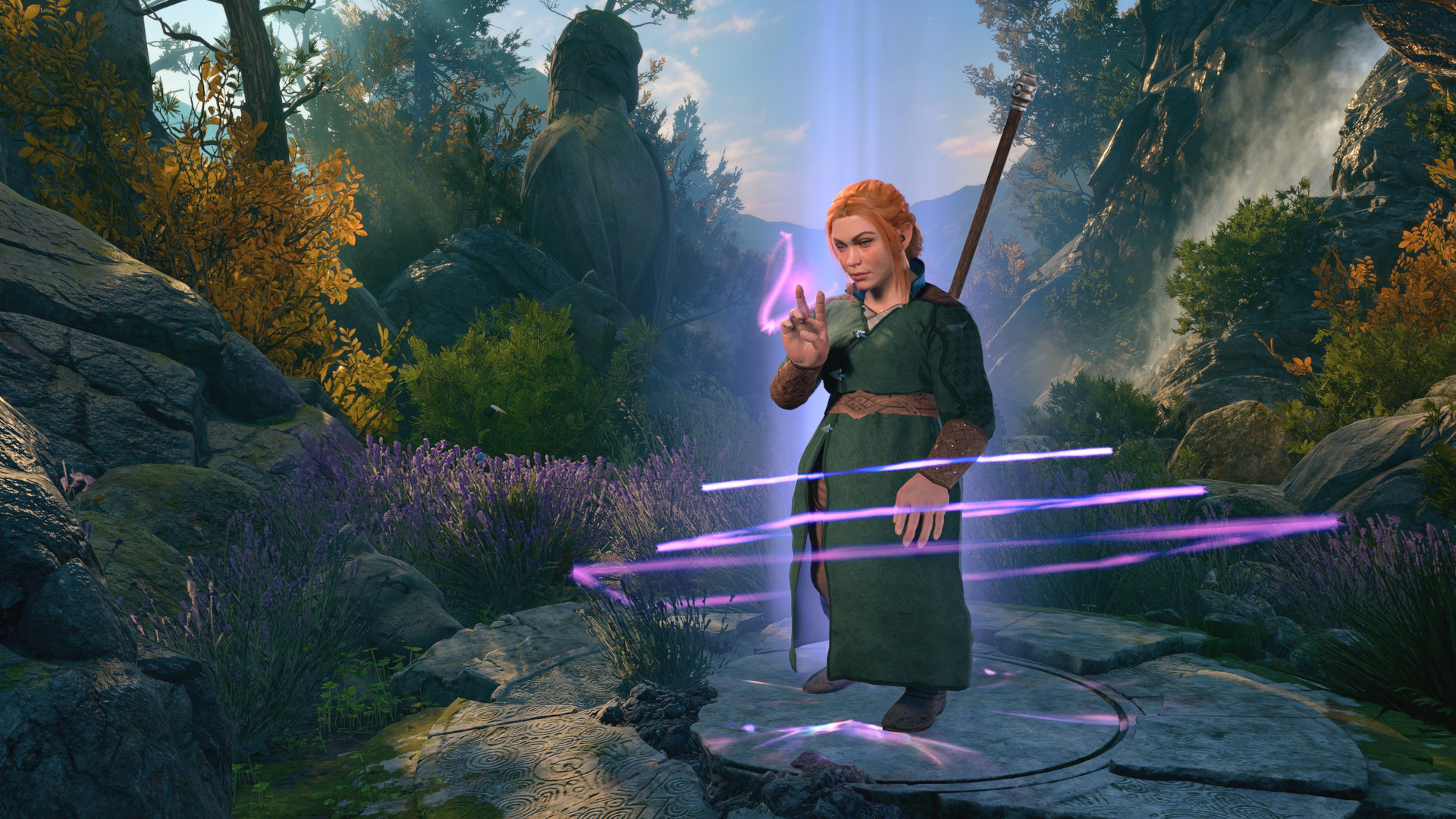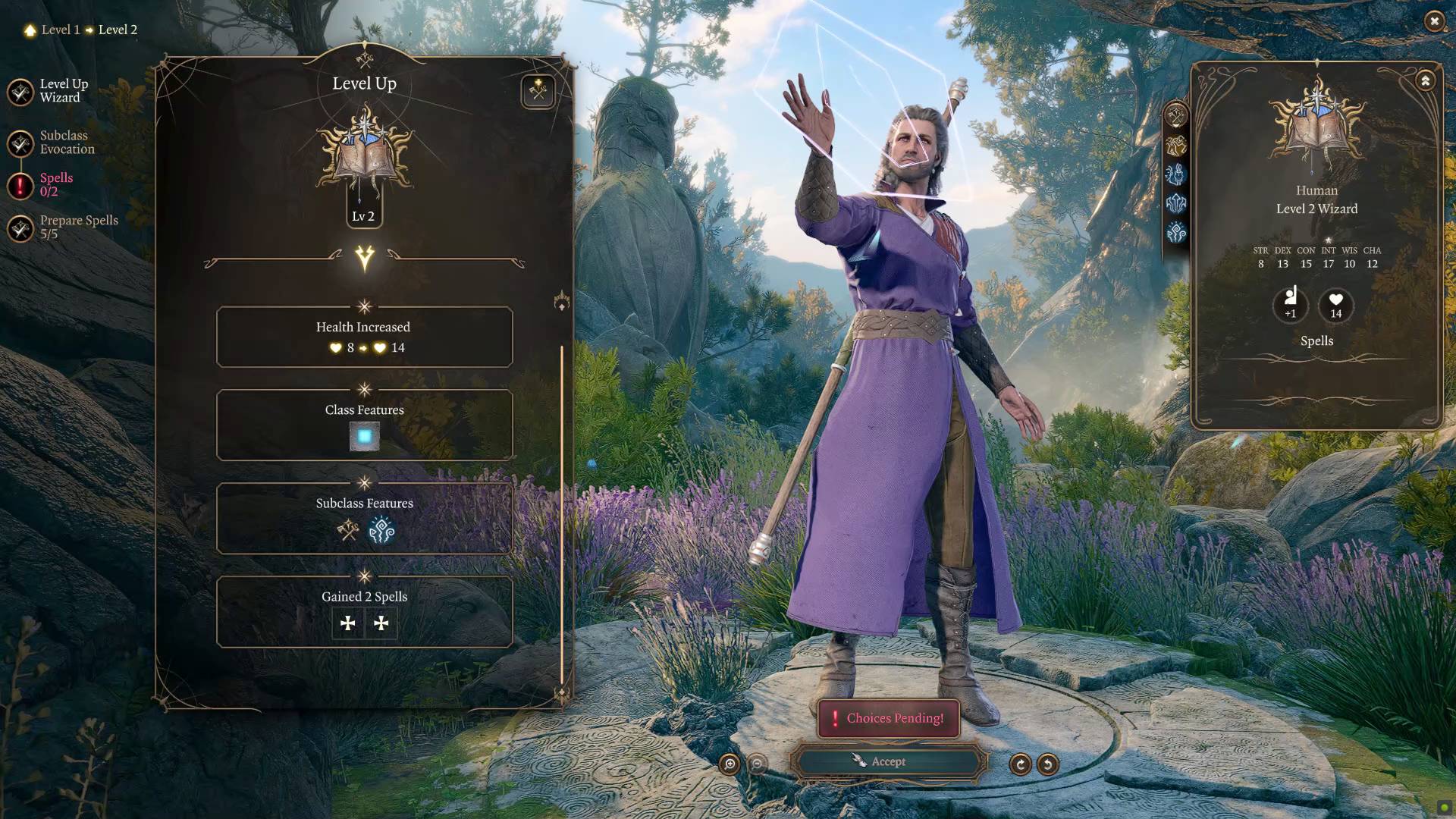Best Baldur's Gate 3 Wizard class build
The best Baldur's Gate 3 Wizard builds, choices, and feats to choose

The best Baldur’s Gate 3 Wizard build goes all-in on the class’s magical might, capable of inflicting massive damage with focused and AoE spells alike. They may be quite fragile in Baldur's Gate 3, having a relatively small number of hit points, but when played well, enemies won’t be able to get close enough to prove it.
Ranged enemies and other wizards are the main dangers then, but hopefully your powerful fireballs, cones of cold, and summons will provide the necessary offensive and defensive power. With that in mind, we’ve laid out how to make one of the best Wizard builds in BG3, capable of taking on the game’s toughest enemies and emerging on top.
The best Wizard build in Baldur's Gate 3

The best wizard build is focused on these main things:
- Area of effect damage from a distance
- Offensive support from spells like Grease and Thunderwave
- Mastering a large and complex array of Intelligence-based magic
The key thing with a Wizard is that they can pump out damage from afar, while controlling the battlefield with Baldur's Gate 3 spells that can affect large areas and generally bother people from the edges of the fight.
Here's what you need for the best wizard build in Baldur's Gate 3:
- Race: Shield Dwarf
- Highest attributes: Intelligence, Dexterity, Constitution
- Subclass: Evocation
- Background: Sage
- Class Skills: Investigation and Religion
- Equipment: Battleaxe and/or Warhammer, any medium armor
- Cantrips: Fire Bolt, Shocking Grasp
- Spells: Grease, Magic Missile, Ice Knife, Mage Armor, Fog Cloud, Thunderwave, Cloud of Daggers, Misty Step
The two main things to be aware of when building a good wizard is to pump your intelligence as your primary ability and to fight from a distance. When it comes to Race we've gone with the Shield Dwarf, as you'll massively negate your "Glass Cannon" qualities with medium armor proficiency, but if you want a second option, try the Deep Gnome as it has Superior Darkvision to see up to 24 meters in the dark, which can help with the range.
There are eight wizard subclasses to pick, which is one of the reasons they can be so flexible and complicated to master. We've gone for Evocation here because of Sculpt Spells, one of the Baldur's Gate 3 Feats you can access that lets you cast magic around your allies so it only affects enemies. Without that, the area of effect abilities you need to make use of are basically dangerous to everyone. The Necromancy subclass' Grim Harvest Feat is also a good choice because it lets you regain hit points if you kill a creature - so it'll toughen up your delicate wizard, though you'll just have to be more careful where you cast.
Weekly digests, tales from the communities you love, and more
Using the Sage option from the Baldur's Gate 3 backgrounds will give you a further intelligence boost, as well the Arcana and Investigation class skill proficiencies, which leaves you free to then pick Investigation and Religion as Class Skills to double down on your intellect even more. When it comes to magic, the world is your thaumaturgical oyster: Fire Bolt is a classic starter for ranged damage, with Shocking Grasp allowing you to zap enemies and run without triggering an attack of opportunity (or consider Ray of Frost to slow enemies and prevent them from closing the gap). Meanwhile, things like Grease and Thunderwave open up area control and let you control the battlefield by creating surfaces that can affect anyone passing through it - Grease followed up by a Fire Bolt is a great one-two punch to set an area ablaze.
Finally, make sure you look for every Scroll you can get your hands on, as Wizards can learn spells from them permanently (though it does cost money to do so). This will build up your repertoire and available skillset, one of the biggest advantages of being a Wizard in the first place.
Later level wizard builds: As you progress up the ranks you can access a spell called Misty Step which lets you teleport around - perfect for keeping your distance or gaining a high ground advantage (something you can also get with Grant Flight). After that, later levels are nearly all focused on big area damage spells like Ice Storm, Wall of Fire and Cloudkill, hence the need for the Sculpt Spell from the Evocation subclass. You should also consider learning Globe of Invulnerability, which grants temporary invincibility, and comes in handy in later boss fights.
At level 10 you'll also unlock Empowered Evocation (again, if you chose that subclass) that will let you add your intelligence modifier to damage rolls for evocation spells. When it comes to Feats, either keep boosting your intelligence, or consider investing in the Spell Sniper for an increased chance of landing critical hits.
© GamesRadar+. Not to be reproduced without permission

I'm GamesRadar's Managing Editor for guides. I also write reviews, previews and features, largely about horror, action adventure, FPS and open world games. I previously worked on Kotaku, and the Official PlayStation Magazine and website.
You must confirm your public display name before commenting
Please logout and then login again, you will then be prompted to enter your display name.


